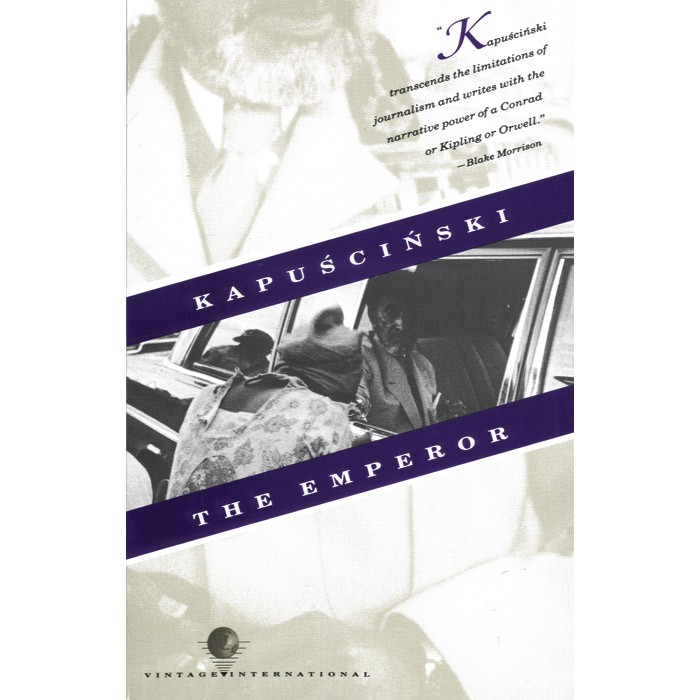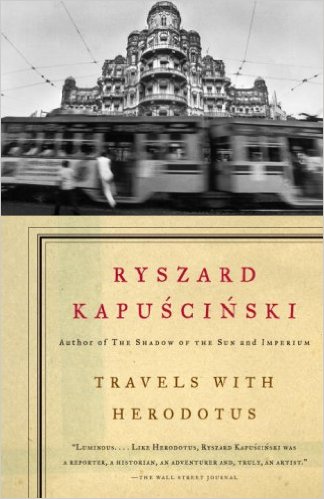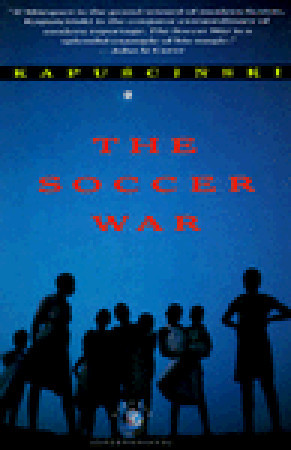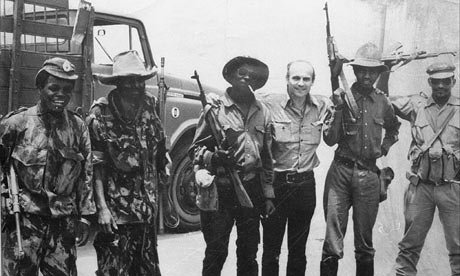A unique journalist this, as Poland’s one and only foreign correspondent for many years he covered the world of Poland’s allies in Africa, Asia, and Latin America. His extended essay ‘The Emperor’ (1989) on the reign of Haile Selassie in Ethiopian is nonpareil.

The insights, the wit, and desiccated humour all stay with the reader long after. Though much of it is fiction larded with a great deal of speculation it makes sense in a way the description of facts and furnishings does not.
The essays in his ‘Travels with Herodotus’ (2002) are likewise memorable. This volume is much more thematic than the compilations of his journalism in other titles. The focus here is on history and the recording thereof.

When ‘The Soccer War’ came to light among the book boxes at home I put it aside to peruse, and peruse I did. (We are still unpacking after last year’s move.)

Most of the places and events in these essays are unknown to me. I never heard of them at the time, or if I did, the memory faded at day’s end. But Kapuściński went where Poland supported insurgents, governments, or had economic interest in the nooks and crannies of the Cold War. He travelled, as he remarks elsewhere, Polish-class. [Use the imagination.]
The Soccer War was a three-month armed conflict between El Salvador (the Switzerland of Central America) and Honduras, then a brother-in-arms with Poland in the Socialist International. Though the animosities and tensions between the two countries were many and deeply rooted, the war exploded when the two played soccer for a place in the World Cup in July 1969. These two midgets were deadly serious, and several thousand people died, and tens of thousands more were displaced. In the aftermath social services collapsed in both countries and many more died of disease and untreated illnesses.
 Kapuscinski with some comrades.
Kapuscinski with some comrades.
Kapuściński happened to be there and became an eye-witness, though he hardly saw anything, try as he might. Think of Fabrice at Waterloo in Stendhal’s ‘The Charterhouse of Parma’ (1839). Add jungles, swamps, and a language barrier.
Skip to content
